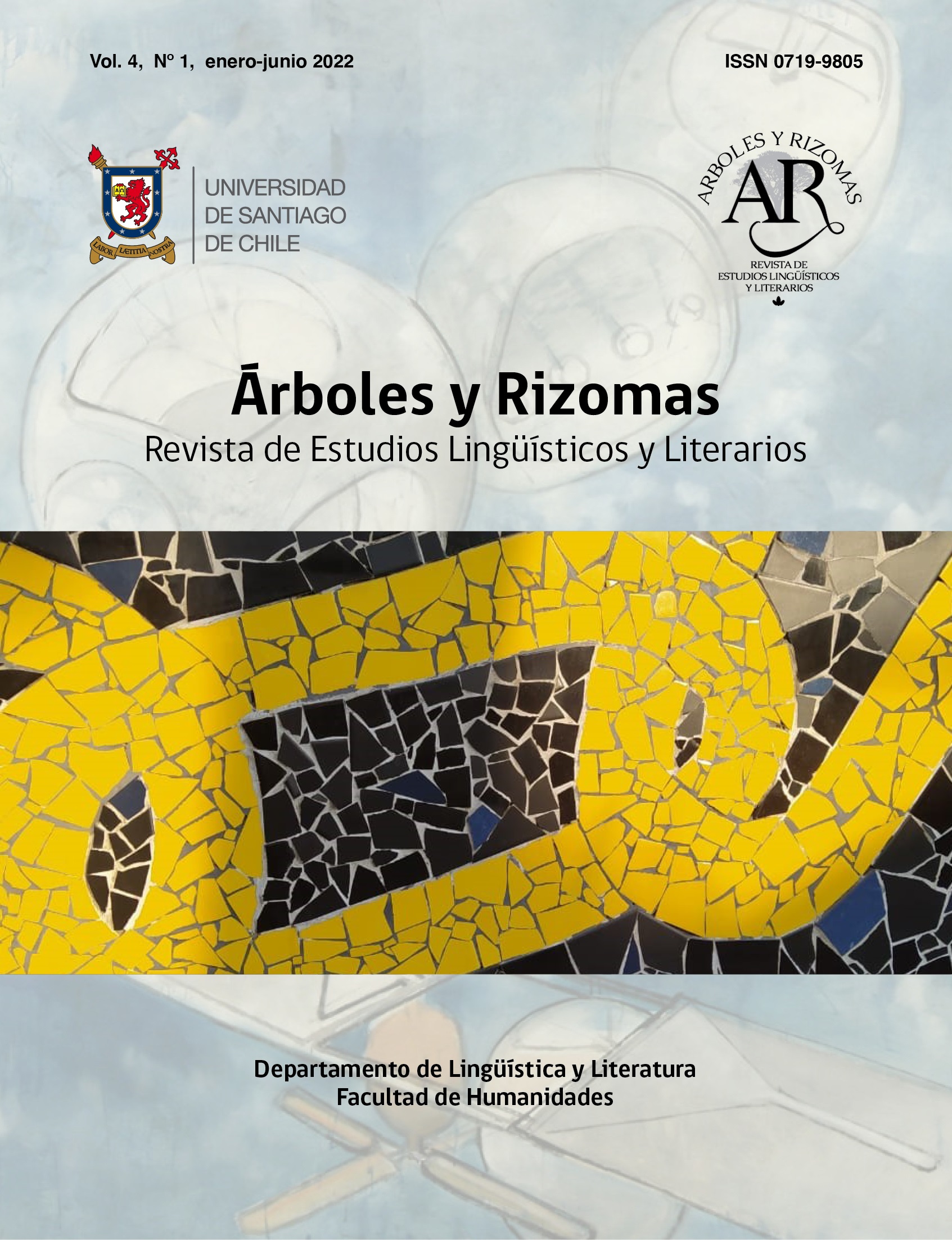Nostalgic memory and identity in Silvio Caiozzi’s "Y de pronto el amanecer" (Chile, 2017)
DOI:
https://doi.org/10.35588/ayr.v4i1.5400Keywords:
Chilean cinema, memory, identity, postdictatorship, nostalgiaAbstract
This article explores the ways in which the film And Suddenly the Dawn (Chile 2017) attempts to mend damaged personal and collective identities through the personal memories of its protagonist, which include traumatic events linked to the 1973 Chilean coup d’état and stories of their youth and childhood in their local community. The article argues that the work of memory presented in the film focuses more on restoring an individual subject rather than a collective one and seems more interested in the retrospective and nostalgic dimension of memory over its prospective dimension, implicitly discarding the renewal of defeated ideals that could link the film to updated critical perspectives.
Downloads
References
Appadurai, A. (1996). Modernity at Large. Cultural Dimensions of Globalization. University of Minnesota Press.
Assmann, J. (2008). Communicative and Cultural Memory. En A. Erll y A. Nünning. (Eds.), Cultural Memory Studies: An International and Interdisciplinary Handbook, (pp. 109-118). De Gruyter. Recuperado de:
Barthes, R. (1966). Introduction à l’analyse structural des récits. Communications, 8, 1-27. Recuperado de:
https://www.persee.fr/doc/comm_0588-8018_1966_num_8_1_1113
Caiozzi, S. (2017). Y de pronto el amanecer [Filme]. Andrea Films.
Candeau, J. (2008). Memoria e identidad. Ediciones del Sol.
De Certau, M. (1980). L’invention du quotidien. 1 Arts de faire. Union générale d’éditions.
Halbwachs, M. (1925). Les cadres sociaux de la mémoire. Librairie Félix Alcan.
Hirsch, M. (2008). The generation of postmemory. Poetics Today, 29 (1), 103-128.
Jameson, F. (1986). Third World Literature in the Era of Multinational Capitalism. Social Text, 15, 65-88.
Jelin, E. (2021). Los trabajos de la memoria. Siglo veintiuno editores.
Larraín, J. (1996). Modernidad, razón e identidad en América Latina. Editorial Andrés Bello.
Lattanzi, M.L. (2011). Nuevas construcciones y desmantelamientos de la memoria en tres documentales de cine autobiográfico argentino. Aisthesis, 49,101-112. http://dx.doi.org/10.4067/S0718-71812011000100006.
Lefere, R. & Lie, N. (Eds) (2016). Nuevas perspectivas sobre la transnacionalidad del cine hispánico. Brill/Rodopi.
Lillo, G. (2017). Memoria y reconstrucciones del sujeto. El filme El secreto de sus ojos (2009) de Juan José Campanella y la novela El secreto y las voces (2002) de Carlos Gamerro, Romanische Studien, 0, 139-156.
Recuperado de:https://www.romanischestudien.de/index.php/rst/article/view/360
Löwy, M. (2017). Reseña de Enzo Traverso, Mélancolie de gauche. La force d’une tradition cachée (XIXe – XXIe siècle) (2016). Le Monde diplomatique, Marzo 2017, p.25.
Maldonado Alemán, M. (2010). Memoria e identidad. Una aproximación teórica. Cuadernos de filología alemana, Anejo III, 171-179.
Moulian, T. (1999). El consumo me consume. LOM.
Parra, J. (2018). Y de pronto el amanecer: la obsesión por el gran relato, El agente cine. Recuperado de: http://elagentecine.cl/criticas-2/y-de-pronto-el-amanecer-la-obsesion-por-el-gran-relato/
Ricoeur, P. (1998). Passé, mémoire et oubli. En M. Verlhac. (Ed.), Histoire et mémoire (pp.31-45). Centre Regional de Documentation Pédagogique de l’Académie de Grenoble.
Sarlo, B. (2005). Tiempo pasado. Cultura de la memoria y giro subjetivo. Siglo XXI.
Subercaseaux, B. (2002). La constitución del sujeto: de lo singular a lo colectivo. En J. L. Martínez (Ed.) Identidades y sujetos. Para una discusión latinoamericana. (pp. 129-145). Ediciones Facultad de Filosofía y Humanidades, Universidad de Chile.
Tal, T. (2005). Alegorías de memoria y olvido en películas de iniciación: Machuca y Kamchatka. Aisthesis, 38, 136-151.Recuperado de: http://revistaaisthesis.uc.cl/index.php/RAIT/article/view/4204
Todorov, T. (2000). Los abusos de la memoria. Paidós.
Traverso, E. (2016). Mélancolie de gauche. La force d’une tradition cachée (XIXe – XXIe siècle). La Découverte.
Ubilluz, J. C. (2006). Nuevos súbditos. Cinismo y perversión en la sociedad contemporánea. Instituto de Estudios Peruanos.






